
Translated from the Bengali by Rajat Chaudhuri
It was in Kurukshetra, epic battlefield of the Mahabharata, that the preceding story of the birth of Death was being told. Vyasa, who is also the composer of this great epic, himself narrated it to the grief-stricken Yudhisthira that evening after his nephew, the legendary warrior, Abhimanyu fell.
The war was at its peak. Bhisma was lying paralyzed on his bed of arrows. Drona had replaced him as the commander of the Kaurava forces. Abhimanyu having entered the deadly chakravyuha formation of the enemy had been killed. It was Yudhisthira who had ordered him to go in. Abhimanyu had said he knew how to breach the chakravyuha but the strategy to come out of it was beyond him. Still with the assurances and encouragement of Bhimsen, Satyaki and others, and under orders from Yudhisthira, he had penetrated the enemy formation alone and fought valiantly.
Bhima, Dhrishtadyumna , Satyaki—Pandava, Panchal, Yadava none of the warrior heroes could enter the chakravyuha that day and help him. In the absence of rear defences Abhimanyu was brutally killed.
Yudhisthira was obviously grief-stricken by this death, and he was consumed with self-reproach. After the untimely end of his dear nephew, he did not aspire anymore for victory, kingdom, immortality, or a place in the abode of the gods.
At the end of that fateful day of battle Yudhisthira had lamented, “Oh, what shall I tell Hrishikesh and Dhananjoy? What I have done for my own good, for winning this war would be unacceptable to Subhadra, Arjuna and Kesava. A young boy deserves priority during feasts and journeys, in repose and raiment. And it’s him that we pushed right to the frontlineofbattle!”
This ethical pang that he had sent a young boy to lead, just to secure his own victory, was driving Yudhisthira’s self-reproach.
While Yudhisthira lamented, Vedvyasa had arrived to console him. He said, “Not like a young boy but rather like the greatestof heroes, Abhimanyu went to heaven after killing many foes.”
With this elevation of Abhimanyu from a young lad to hero, Vedvyasa largely alleviatedYudhisthira’s remorse.
Universalizing of personal grief reduces its force. We begin to realize it as part and parcel of life and its rules. So, Vyasa added, “The gods, the demons, the gandharvas are all destined to die, for everyone death is insurmountable.”
Now Yudhisthira, as befits his style,delved into theoretical questions. This too is a means to rise above personal grief. Like another kind of defence mechanism. Yudhisthira, ever curious about theoretical underpinnings, asked Vyasa, “Who is Death? Wherefrom does he or she arise? Tell me, why does Death take lives?”
For the Mahabharata, this kind of storytelling in the midst of war is par for the course. In fact, Krishna had narrated the Gita to Arjuna right in the battlefield. And here it is even more natural and reasonable that such a story be told to inspire the tired and despondent warrior when he returns to his tent.
Responding to Yudhisthira’s questions, Vyasa had told a story—long ago there was a king named Akampana. His son Hari had been killed in battle because of which Akampana always remained drowned in grief. To alleviate Akampana’s suffering, the divine sage Narada had narrated thetale of the birth of Death which we have already heard. Naradahad finished by saying, “Maharaja, under Brahma’s order, the goddess of Death takes the lives of beings with complete non-attachment, when their end arrives. So don’t grieve fruitlessly.” This tale told by Narada has been designated by Vedvyasa as a “narrative to alleviate the grief of a son’s loss”.
During the war as one after the other near and dear ones perish, these stories serve like morale-boosting vocal tonic.
Next Vedvyasa will tell Yudhisthira another story of untimely death. Narada is in this story too but as a character in the plot.
A king named Srinjaya having satisfied some brahmins with care and service asked that he be blessed with a male child. Narada was living as a guest of Srinjaya right then. The brahmins approached Narada and requested him to offer a boon to the king so that his wish was granted. Srinjaya told Narada that he wanted a son of many qualities, someone who was strong, famous and accomplished, who perspired and excreted gold through sweat, feces and urine.
With Narada’s blessing, just such a child was born to the king. The son was named Subarnasthibi—one whose feces are made of gold.
King Srinjaya started building everything with this gold. Walls, forts, beds, seats, vehicles, plates, and bowls were all made from gold. Now a gang of robbers got tempted and kidnapped the prince and took him into a forest. Driven by their greed for gold they cut him up into pieces, but it was all in vain. With the death of Subarnasthibi, all those items and articles made of gold returned to their original forms. Soon, the robbers fought among themselves and finished each other off. King Srinjaya began to grieve his son’s death.
Here grief creates a parallel between Srinjaya and Yudhisthira.
Narada, giving King Srinjaya the examples of sixteen large-hearted kings said “they all surpassed you in their greatness because of their yagnas, chanting of the Vedas, charity and penance and they are all dead. Your son neither did yagna nor charity. It’s not right to mourn for him.”
Here yagna, chanting, charity and penance should be considered noble deeds. In the cultural milieu and beliefs of those times, these activities were considered indispensable.
Now as King Srinjaya declared that Narada’s words have alleviated his grief, we arrive at a twist in the tale. Narada, using the power of a boon, brought Subarnasthibi back to life. This was because, dying at the hands of robbers had been in vain. For this, the king’s son had gone to hell or naraka. Now he was granted a new life to save him from the suffering…
I am tempted to digress a bit.
Doesn’t this tale of Subarnasthibi bring King Midas of Greek mythology to our minds? Midas had been granted a wish by the god Dionysus which would turn everything the king touched to gold. Dionysus had repeatedly asked him whether he had properly considered what he was asking for. But Midas stuck to his wish and so was granted the same. From then on, whatever Midas touched would turn into gold. When the initial excitement died, Midas tried to eat a fruit and found it had turned into gold. He tried to drink water and the water changed to gold. Boundless joy suddenly began transforming into fear. Then Midas’ daughter transformed to a statue of gold upon her father’s touch. At Midas’ stricken requests Dionysus took back the gift of “golden touch”. Things returned to normal. It was as if a boon hadn’t been withdrawn from Midas,rather he had been released from a curse.
Here a father’s greed results in a daughter’s death. In the Mahabharata a father’s greed had resulted in his son’s death.
Greed begets sin and sin leads to death. The story from the Mahabharata is however not bound by that ethical proposition alone. It could perhaps emerge as a corollary of that story whoseprincipal purpose lies somewhere else.
Midas is a subject of ridicule in his story. Comic situations surrounding Midas have been fashioned in other tales from Greek mythology. Once, while judging a contest, he had preferred Pan’s music over that of Apollo. This arrogance drew a curse from Apollo, the god of music, and Midas’ ears transformed into those of a donkey. Because only adonkey is unable to appreciate good music. Midas was thus forced to hide hisbig donkey-like ears under a cap. Only the barber knew this. He was instructed to keep it to himself. The barber had promised to the king that he will keep this a secret. But the man couldn’t keep his promise. Late one night he went to a field, far from home and digging a hole there spoke into it—“our king has donkey’s ears”. The barber felt relieved spilling the secret and after closing the hole with loose earth, returned. In spring, trees and plants grew in that field. When the trees swayed in the soft breeze their whispers floated about in the wind. It was as if they were saying—“our king has donkey’s ears”. Slowly these words spread across Phrygia.
We see how Midas turns out to be a loser and a comic character whether the matter is a god’s curse or a boon.
Srinjaya on the other hand is open to censure but he is no laughing stock. The story from the Mahabharata is somewhat more serious. There, gold is valuable, but it is excrement too. This story does indicate that like human excreta, gold is actually of little real value.
Why did Vyasa narrate a story to Yudhisthira where the dead is resurrected? Now this would further dishearten Yudhisthira if Abhimanyu’s life isn’t restored. That this doesn’t happen is because Vyasa uses this narrative to make Abhimanyu’s death more logical and acceptable. Subarnasthibi’s death is that of a frightened and terror-stricken boy who is incapable of fighting a war. Without having accomplished any tasks his death was in vain. So, there is logic of bringing him back to life which does not apply for Abhimanyu. Abhimanyu is a great hero. He has gone to heaven having killed his enemy in face-to-face combat.There are no inconsistencies in his dying, his death hasn’t broken any rules,which is why it is not possible to bring him back to life.With this, Abhimanyu’s death becomes one without any alternative where mourning and grief is unwarranted.Like this, the wonderful tales of the Mahabharata appear as refuge for the characters in times of crisis.
Glossary
Abhimanyu: He was born to the third Pandava prince Arjuna and Yadava princess Subhadra, who was also Krishna’s sister. Abhimanyu married Uttara, the princess of the province Matsya. His son, Parikshit, was the one who saved the lineage from extinction and went onto become a legendary king.
Arjuna: Arjuna also known as Dhananjaya. He is the third among the Pandava brothers, the five sons of Pandu. The family formed part of the royal line of the Kuru Kingdom. In the battle of Kurukshetra, Arjuna was a key warrior from the Pandava side.
Bhishma: A renowned warrior who belonged to the Kuru family. Son of Shantanu and Ganga. He was the grandfather of both the Kauravas and the Pandavas. He was also the General of the Kauravas in the Battle of Kurukshetra. He watched the end of the battle from his death-bed of arrows.
Bhimsena/Bhima: Son of Pandu and Kunti. The second brother among the Pandavas. Skilled in the traditional form of combat-wrestling and fighting with mace.
Dhananjaya: See Arjunaa.
Dhrishtadyumna: King of Panchala kingdom who fought for the Pandavas as their commander. He was Draupadi’s twin brother and beheaded the great teacher and master of warfare, Dronacharya.
Hrishikesha/Kesab: Other names of Krishna. He was the famous warrior of the Yadu clan. For Hindus he is one of the avatars of Lord Vishnu. He was Arjuna’s charioteer but didn’t take up arms against the Kauravas in the battlefield. Krishna narrated the Gita to Arjuna in the middle of the battle of Kurukshetra.
Narada: Debarshi Narada is a celestial sage, famous in Hindu tradition as a travelling musician and storyteller, who carries news and enlightening wisdom. He is one of mind-created children of Brahma, the Creator.
Satyaki: A warrior, who belonged to the Yadava clan. He was one of the valiant warriors of the Pandavas’ in the Battle of Kurukshetra .
Yudhisthira: The eldest son of Pandu and Kunti, who was famous for his truthfulness. He won the Battle of Kurukshetra and became the King.



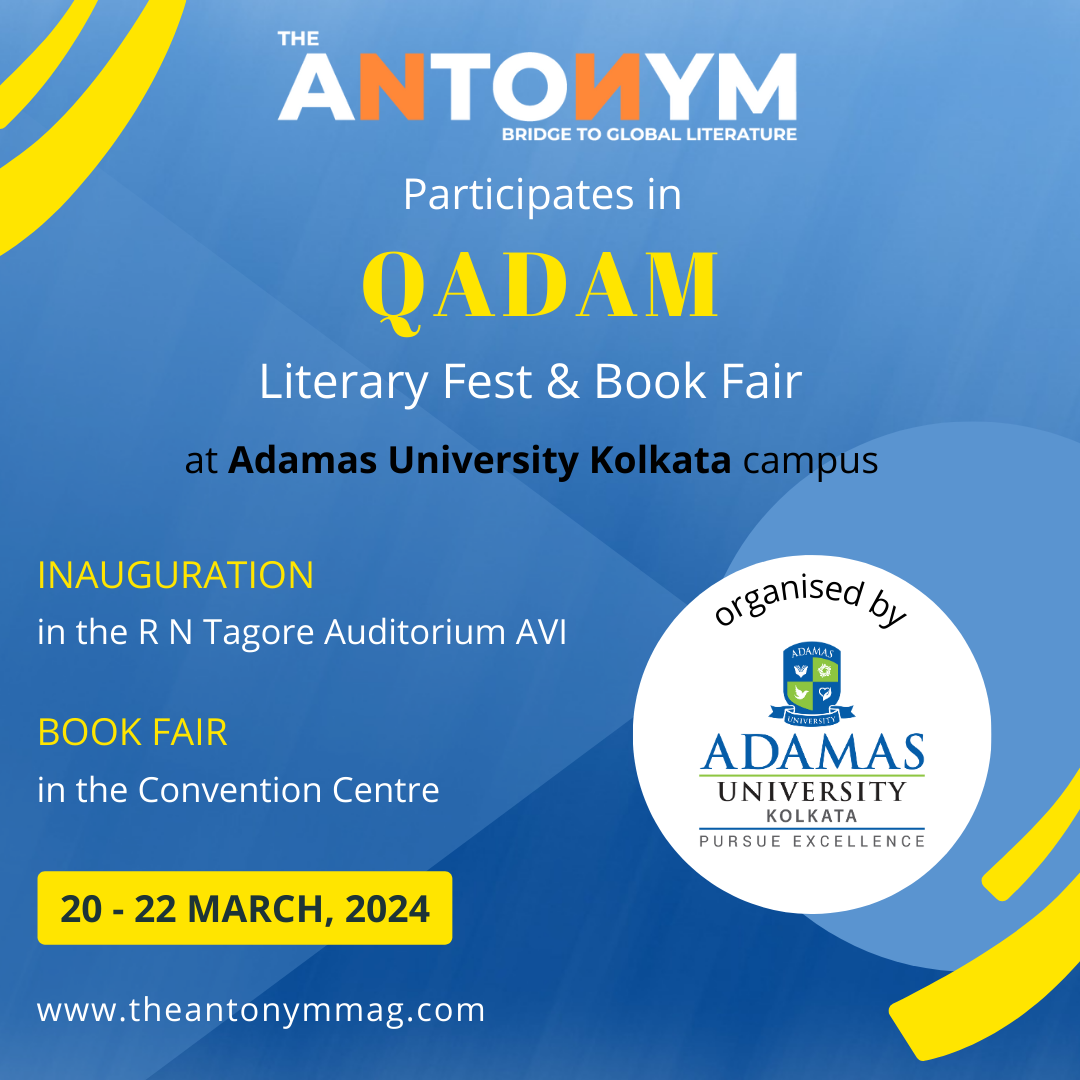
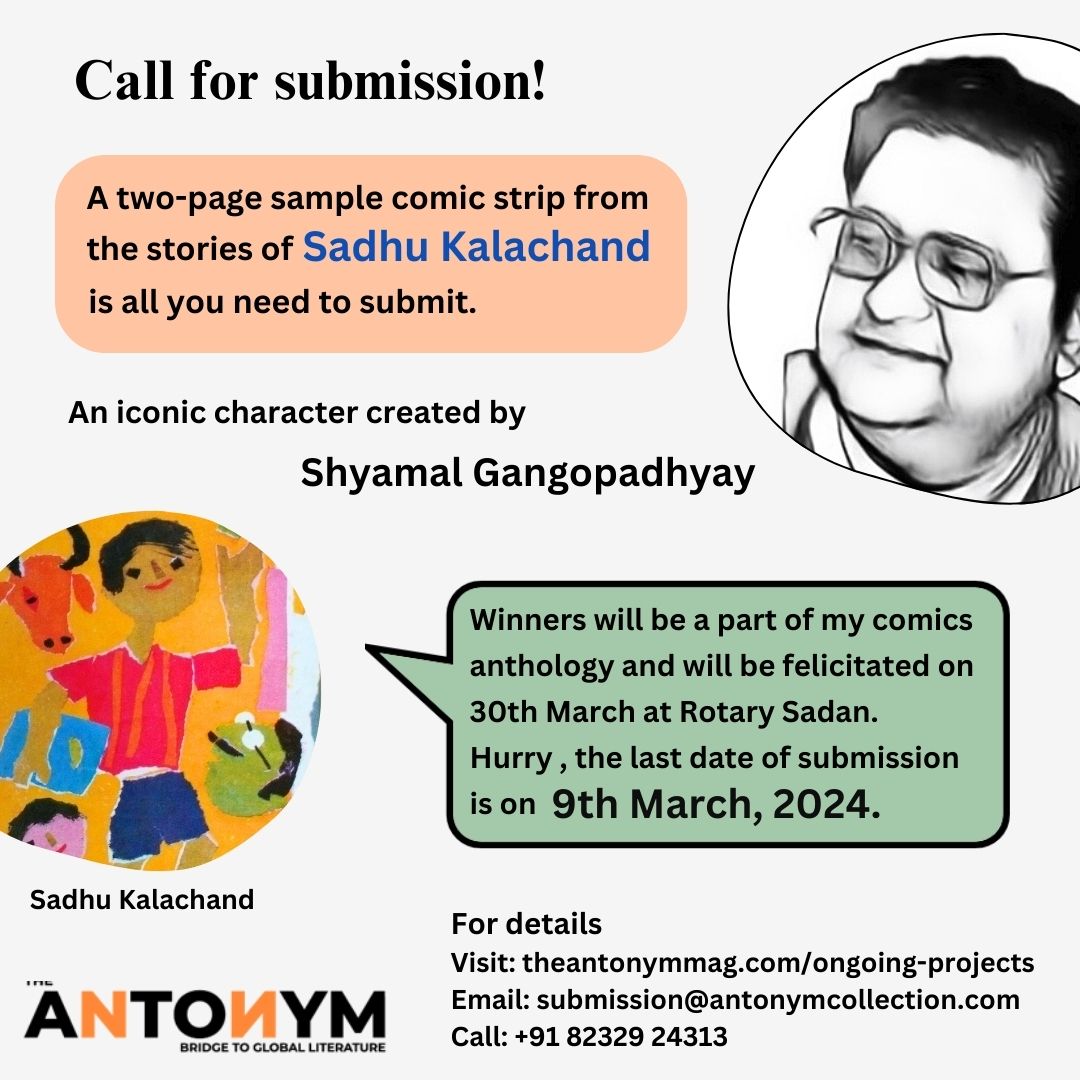
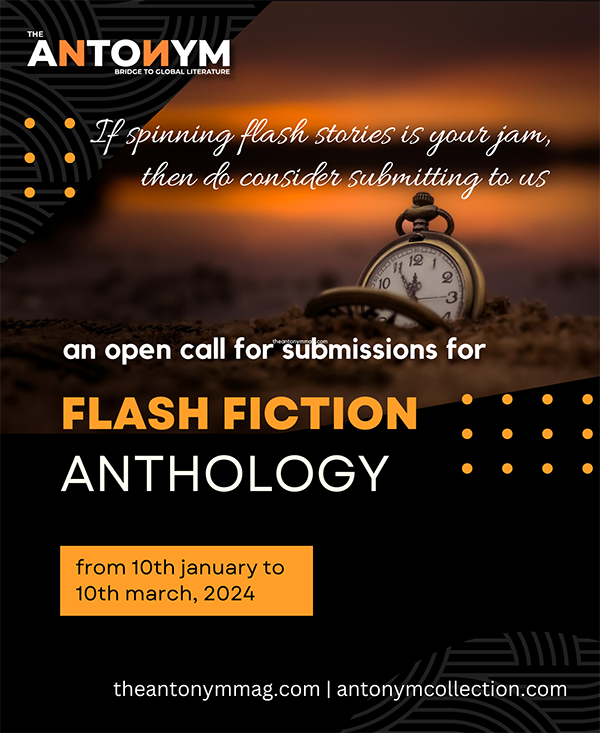








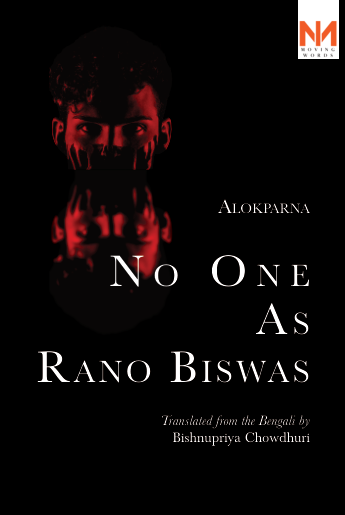
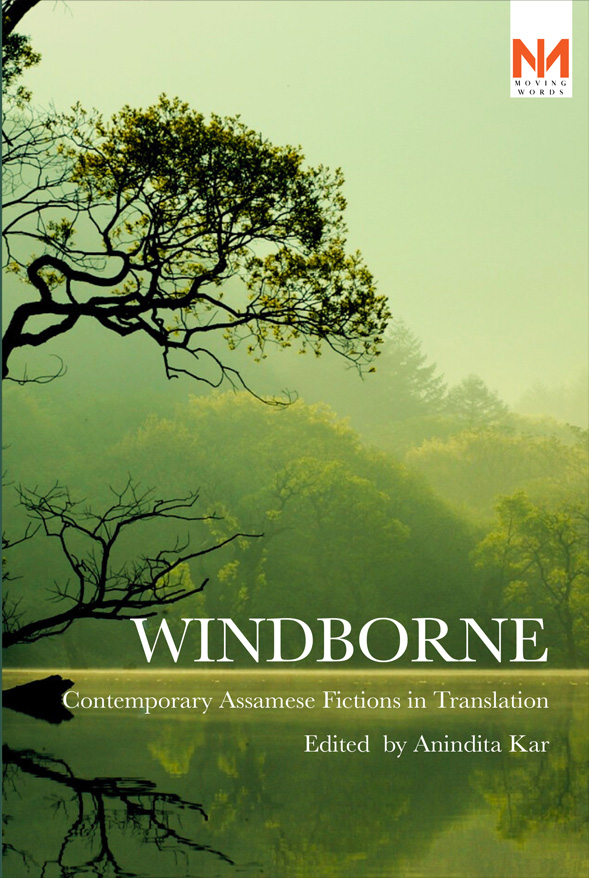
















Interesting epic-topic chosed by writer Arpan Chakraborty, this is 2nd part of this topic,translation is very smooth.
Mahabharata is a text which I am very fond of, but didn’t know the story beforehand… Looking forward to more such stories containing pieces of wisdom as well.